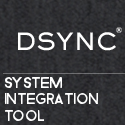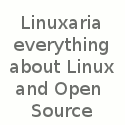By Roger J Webb
Milton Friedman the American Economist said “There’s no such thing as a free lunch” and even though Open Source is free to use, alter, and pass on, there’s still a price to pay. To date, I have used two Open Source Content Management Systems (CMSs) to run five on-line communities and paid the price.
The fact that I still do so reflects the underlying value of open source cms software to structure community web-sites. Even as they come downloaded from the internet without additional ‘themes’ or ‘modules’ they provide:
• A choice of very acceptable ‘looks’ with colour schemes, sidebars, headings etc
• Access control allowing you to differentiate between casual visitors, members, contributors (of material) etc
• A structure with normally a landing page with ‘tasters’ hinting at the contents of the body of the site.
• Menus and their associated links.
Not only that but by downloading additional themes you can change the appearance to match your needs and modules to extend what they call ‘functionality’ so that a ‘WYSIWYG’ module allows your visitor to write in plain English, or French, or Italian, or indeed Swahili.
So what are we doing looking such a gift-horse in the mouth?
Well stability!
I don’t mean unstable in the “now you see it: now you don’t” sense, Drupal had been open source since 2001 and Joomla since 2005 so both are established and mature now, but in the sense of ‘undisciplined’ even “bipolar”. The core programs are like the locomotive of a very long train, the coaches of which are the various modules and themes. At a recent count Drupal had 15,648 such coaches. Every time Drupal core has a major update, all these have to be updated to match: all by volunteers in their spare time!
Now major updates are relatively rare, Drupal is on Version 7 (in May 2012) suggesting an average version life of about 19 months, but Version 7 was in its 14th reincarnation. These incarnations do not require updates of the rest of the train but do require that the user keeps reasonably up to date. However updating is not always a simple matter of downloading the zip file and then uploading the expanded core to your site.
1. There has sometimes been inadequate testing – and sometimes it feels that the users are effectively the testers, and ‘bugs’ are common.
2. For the upload to work the core has to be consistent with both your internet provider’s and your internet hosts systems. If not you have three organisations all blaming the others for the problem and no one taking responsibility for it.
Roger Webb is a retired CEO from Small and Medium Sized (SME) companies in the UK and Continental Europe. In thirty years’ experience at life at the top he has been instrumental in turning around and setting up a number of specialist subsidiaries in Europe, Africa and beyond, in every case producing stable profits in some of the most testing corporate environments imaginable.
In retirement he has devoted most of his energies in developing a group of wiki sites devoted to helping others to set up eBusinesses. His current sites http://Computer-Virgin.net for new-starters and http://mywebtrade.net for those further along the trail are just part of those efforts and arebased on the Drupal Open Source Content Managment System.
Article Source: http://EzineArticles.com/?expert=Roger_J_Webb
Article Source: http://EzineArticles.com/7048031


“There has sometimes been inadequate testing – and sometimes it feels that the users are effectively the testers, and ‘bugs’ are common.”
Who is responsible for testing? This does not have anything to do with propietary or open source CMS systems – I have deployed several Sun One Web servers (now Oracle iPlanet), IIS servers, Drupal and more, and there have never been such a case that I simply assume Oracle or Microsoft have tested their patches for my setup. Expecially when using 3rd party modules you got to do the testing yourself unless you have paid a provider to take care of not only deployment but upgrades too.
If I deploy Oracles patches for a database or web server on a client facing production machine without testing I am to blame! I cannot sue neither Microsoft or Oracle for my downtime.
Testing on propietary solutions such as using Oracle DB and iPlanet servers further require additional licenses for the test server, and it is often far from as easy to clone the production setup onto a test server as the case with Drupal and the other Open Source solutions.
In the case of Drupal it is mostly dump the database, clone the drupal root folder, restore the database dump on the test server and you are ready to perform the upgrade there with all the time in the world to go through your checklist of important use cases for the system making sure nothing broke. In most cases, spare the issue with extra licenses it is the same for propietary, which in my experience break functionality at least just as frequently as upgrading open source deployments such as Drupal.
Sure – the 3rd party providers may provide better testing too, but really, regardless of propietary or Open Source it boils down to you being responsible for the downtime you cause your clients by not doing proper testing.
Milton Friedman? More like Robert A. Heinlein. He made TANSTAAFL popular in 1966.
He probably read Pierre Dos Utt’s monography from 1949 …
I don’t actually get the point of your rant. Let me try and unpack some of your issues.
So what if Joomla and Drupal modules are updated in their spare time. How does that cast any doubt as to the capability, or dedication of the individuals.
Your point about testing is quite true. The users are a testing bed. That is one of the characteristics of the open source ‘movement’. What would you rather have – software tested by hundreds and thousands of users, or 5 guys locked in a room for a month? The fact of the matter is both these projects have beta programs where most issues are ironed out.
I challenge you to file a big report on either one of these systems and note your response. Then go and do that for one of your mass-used paid apps. Then compare.
Regarding your issue about the core being consistent with the host system – I just don’t get it! That is how all systems work.
If Roger has spend any considerable time in Internet/Web services, especially in Europe he would (or should) know that the world of quality Content Management System (CMS) web software is by no means restricted to Drupal and Joomla. Indeed it has become common practice in articles on web development to mention or report on only those two as well as WordPress, as if there were nothing else.
While I have only been involved with Internet/Web development for about five of my total twenty five plus years in professional Information Technology, I do know – as it should be – that there are excellent CMS outside those three applications.
To fully understand the capabilities, functionality and suitability of Web CMS for my clients, I have undertaken to install, configure and use at least ten CMS over these five years, including several PHP/MySQL based, two Python based, a Ruby-on-Rails based, two Java based CMS even a tcl/Postgres CMs – OpenACS. No Dot.net based CMS including Free/Open Source Software (FOSS) CMS were evaluated or tested, as these work on a very unstable and insecure foundation of Internet Information server (IIS) and Windows Server.
For Web communities large and small, Plone CMS/Portal has an enviable record for handling complex web applications that “require” a sophisticated level of workflow, rock solid reliability (your stability needs) and very strong security, not found in any of the competing PHP/MySql products.
Two great examples: http://osha.europa.eu/en – serving more than 400 million EU users in 18 languages, and http://www.aarp.org – with 40+ million members, the largest not-for-profit
organization in USA.
The venerable Typo3 is a worthy consideration for unflappable stability and security as a PHP/MySQL application
It is imperative that Web Development technologists have a good sense and experience of the better products and services in their field before restricting choice/ selections to only those few they prefer or with which they have any experience.
I don’t see your point either. So there ain’t a free lunch is like saying there ain’t a magical ferry that will pop up and solve all your problems. Also the quotation in this context (i.e. open source software [OSS]) more refers to a misunderstanding on your site. I don’t think anyone will argue that OSS is a free lunch like in it has no costs.
The free in OSS refers to free as in libre, in that you can take the software and do whatever you feel like. If you are complaining about stability, why don’t you just hire a few developers or a firm to maintain your sites? You are free to do so with OSS, but not with proprietary software. Without access to the source code, you are locked for support with the vendor.
I think the the idea of GNU/Linux suffers heavily, because in English language words “free” – no price tag (i.e. “darmowe” in Polish) and “free” – like freedom (i.e. “wolne” in Polish) are the same. Yes, there is a price to pay for using “free” software, but the most important is that the FLOSS is based on FREEDOM. The is no lunch based on freedom as far as I know.